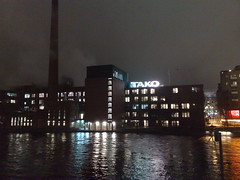That’s September 16th. I assume it’s celebrated in the United States for two reasons:
- It was a victory over the French and we all know how some sectors of the American public love to hate the French
- General Ignacio Zaragoza, who led the Mexican troops at that battle, was born in what is now Texas when it was still part of Mexico, so its background resounds with Mexican-Americans.
Although it is certainly celebrated in some parts of Mexico, the whole brouhaha they make north of the border as “Mexican heritage day” is as alien to most Mexicans as hard-shelled tacos.




